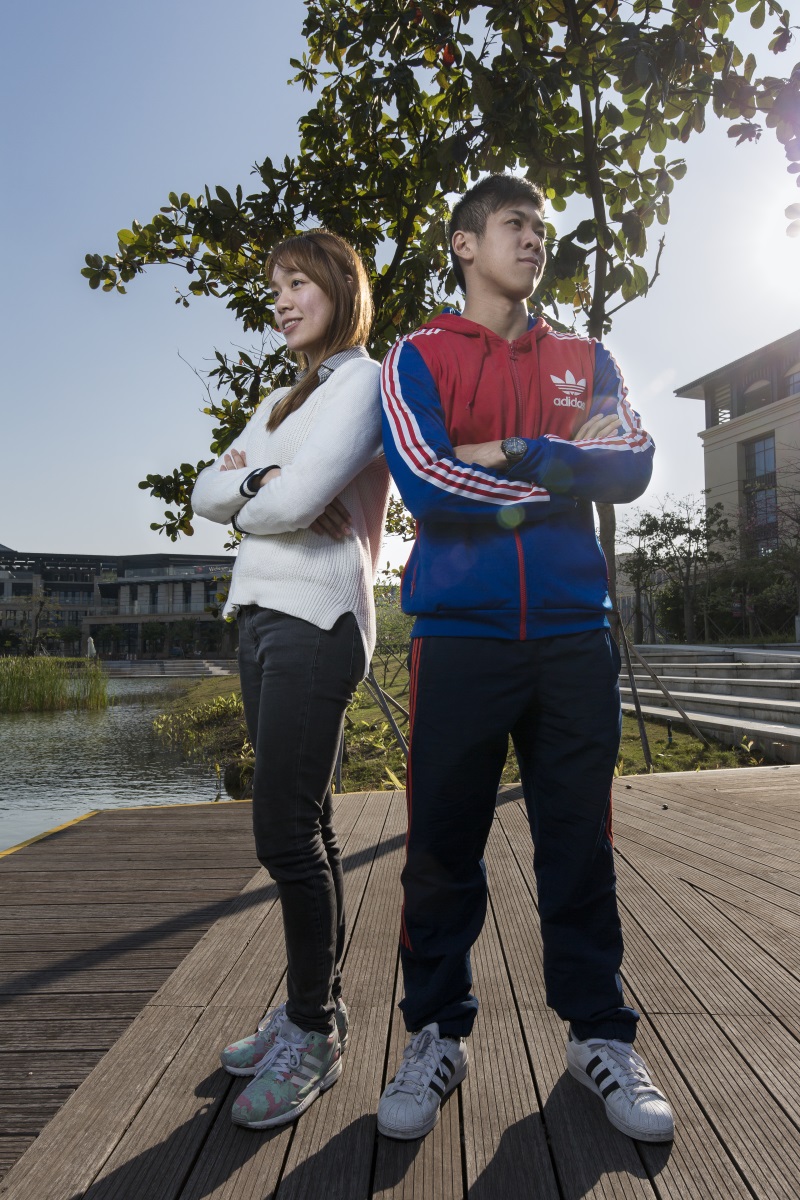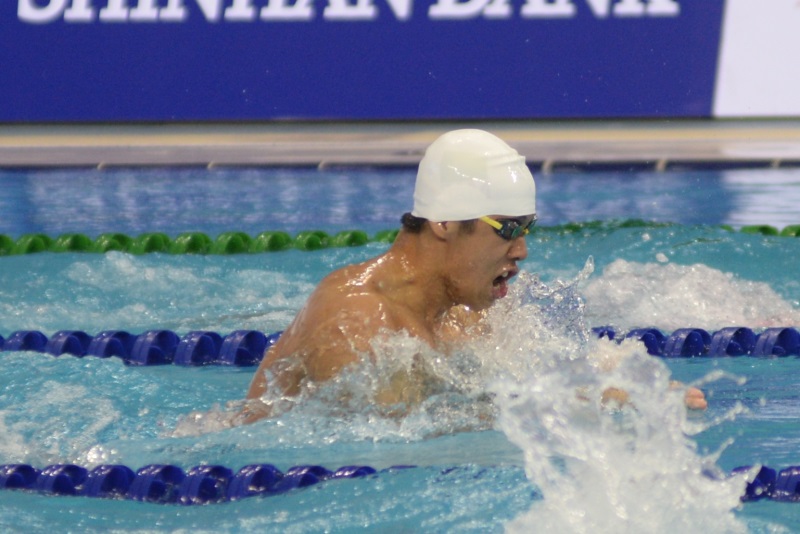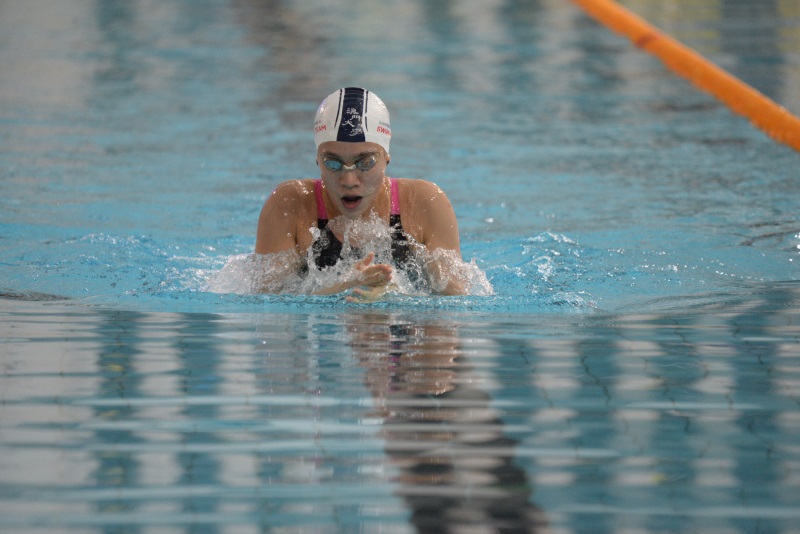Source: umagazine
Chao Man Hou, aka the ‘Frog King’ of Macao, is a second-year student in the Department of Communication at the University of Macau (UM). To many UM members, Chao’s reputation precedes him. But he is actually not the only swimming champion at UM. This year, Lei On Kei, the ‘Frog Queen’ of Macao, also joined UM. Lei is now a postgraduate student in the Faculty of Education, majoring in physical education and sport studies.
‘If I don’t swim, I would feel out of sorts.’
In 2014, Chao made front-page news in Macao’s most prominent newspaper after breaking the record in the National Student Sports Games. ‘If I don’t swim, I would feel out of sorts, listless, and irritable,’ he says. ‘Swimming is an important part of my life. Nothing, not even school tests or bad weather, can stop me from swimming.’ Having spent a lot of time in training since childhood, Chao has learned how to manage time effectively.
After he started college, Chao faced a new challenge: finding time to work on group projects with the other students. ‘I’ve tried skipping training so I could work on group projects with the other students, but I felt it wouldn’t be a long-term solution, so I came up with an idea. I would offer to do more work if my schedule doesn’t allow me to meet with the others for the project. Luckily the other students have been very understanding.’ Now a semi-professional athlete, Chao trains six days a week for a total of 15 hours, and only rests on Sundays. Apart from swimming, he also loves to play video games. ‘Swimming helps me release study-related stress, and if the stress is too great to be released through swimming, playing video games would usually do the trick,’ he says.
There Is No Finish Line in Swimming
Swimming is also an important part of life for the ‘Frog Queen’ Lei On Kei. Lei won a silver medal at the Asian Swimming Championships 2012. It was the first medal won by an athlete from Macao at the competition. ‘I feel completely relaxed when I’m in the water, where I hear nothing but the sound of water,’ she says.
Lei used to be the only full-time swimmer in Macao, training for 25 hours a week. Later she felt that one-on-one training was not the most effective way to improve her skills, so in January 2016 she became a semi-professional athlete. ‘Full-time athletes in other places mostly go out for training,’ she says. ‘Besides, I’m older now, so I think instead of putting in more time, I would benefit more from paying attention to the details.’
For Lei, there is no finish line in swimming. Making continuous progress is always her goal. Her current thesis supervisor is an expert on sports physiology. Under the supervisor’s influence, Lei has developed a strong interest in the subject. She plans to pursue further studies abroad after completing her master’s studies at UM. ‘I hope to use science to optimise training outcomes for athletes in Macao so we can reach international standards in athletic training,’she says.



